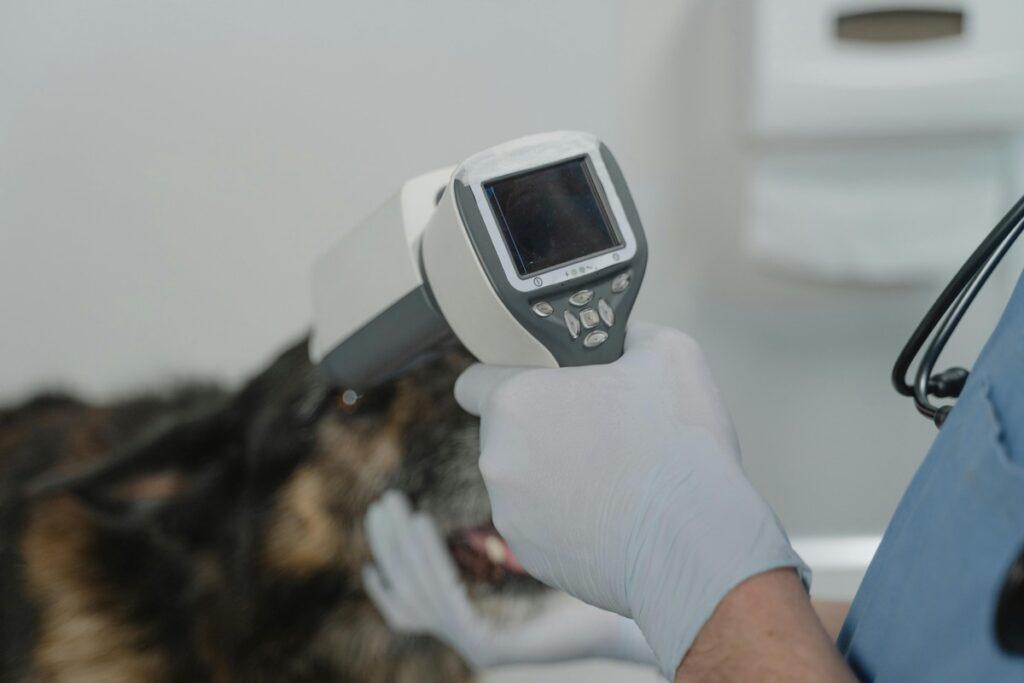If you’re planning to travel, adopt, or groom your pup, chances are you’ll need a dog health certificate. This essential document proves that your dog is in good health and free of contagious diseases — and it’s often a legal requirement for airlines, state borders, and professional grooming services. In this 2025 guide, we’ll break down everything you need to know about dog health certificates, from how to get one to the most common requirements in the U.S.
What Is a Dog Health Certificate?
A dog health certificate, also known as a Certificate of Veterinary Inspection (CVI), is an official document issued by a licensed veterinarian. It confirms that your dog has been examined and is free from signs of illness or contagious diseases. It typically includes:
- Dog’s name, breed, age, and microchip number (if applicable)
- Date of examination
- Vaccination history, including rabies
- Confirmation of overall health status
- Veterinarian’s license number and signature
When Do You Need a Dog Health Certificate?
Dog health certificates are commonly required in the following situations:
- Domestic Travel: Many U.S. states require a CVI when crossing state lines, especially by air.
- International Travel: Countries have strict import rules. A health certificate and additional documentation (e.g., rabies titer tests) are often needed.
- Adoption/Rescue: Some shelters and rescue organizations require a certificate before releasing a dog to a new owner.
- Grooming and Boarding: Facilities often ask for proof of health and up-to-date vaccinations before accepting your dog.
Requirements vary depending on destination or provider, so always check local or international guidelines beforehand.
How to Get a Dog Health Certificate
Getting a health certificate is a straightforward process, but it must be completed correctly and in a timely manner:
- Schedule a checkup with a licensed veterinarian.
- Make sure vaccinations, including rabies, are up-to-date.
- Have your dog microchipped if required for travel (especially international).
- Your vet will fill out the certificate, sign it, and provide you with copies.
Most certificates are valid for 10 to 30 days, depending on the destination. Timing is crucial — book the exam close to your departure or requirement date.
Pro Tip: For international travel, some countries also require USDA endorsement of the certificate. Visit the USDA APHIS Pet Travel website for official information.
👉 Continue to next section: “Cost, Processing Time, and Validity Explained”

Cost of Getting a Dog Health Certificate
The cost of obtaining a dog health certificate can vary based on location, vet clinic, and whether international documentation is required. On average, you can expect to pay:
- Domestic certificate: $40–$150
- International certificate: $100–$300
- USDA endorsement (for international travel): $38–$173 depending on number of pets and destination
These fees typically cover the physical exam, paperwork, and notary. Any additional lab tests or vaccinations may incur extra charges.
How Long Is a Dog Health Certificate Valid?
Validity depends on where you’re traveling:
- Domestic (U.S.) travel: Usually valid for 10 to 30 days
- International travel: Typically valid for 10 days, but specific countries may have different timeframes
Always check the exact requirements for your destination — outdated certificates are considered invalid and may delay travel or services.
Different Rules by State or Airline
In the United States, each state sets its own import requirements for dogs. For example:
- California: Requires rabies vaccination and a valid CVI for entry
- Hawaii: Has a strict quarantine program — even with a health certificate, additional steps are required
- New York: Often accepts a certificate within 30 days of travel
Likewise, airlines like Delta, American Airlines, or United have their own pet travel rules. Most require a CVI issued within 10 days of the flight, along with a pet carrier that meets IATA regulations.
Common Mistake: Assuming one certificate fits all — always verify current rules with your airline or destination state agency.
👉 Continue to next section: “Tips for a Smooth Health Certificate Process”
Tips for a Smooth Health Certificate Process
- Book your vet appointment early: Some destinations require a certificate issued within 10 days — don’t wait until the last minute.
- Bring vaccination records: Include proof of rabies, distemper, and other core vaccines.
- Ask about microchipping: Many international destinations require dogs to be microchipped before travel.
- Keep your dog calm: Bring treats, favorite toys, and a calm demeanor to ease your dog during the vet visit.
- Print extra copies: You may need to show the certificate multiple times during your trip or at a groomer’s facility.
Pro Tip: If you’re planning international travel, ask your vet to fill out an APHIS 7001 form early and check if USDA endorsement is required.
When You Might Need a Dog Health Certificate
- Traveling by plane, train, or across state lines
- Boarding your dog at a kennel or daycare
- Visiting a groomer that requires proof of health
- Selling, adopting, or rehoming a dog
- Entering international destinations with pet import laws
Want to learn more about health concerns that could prevent travel? Check out our article on Common Dog Health Problems and Signs of Illness in Dogs.
Also, if you’re prepping for long trips, consider reading our guide on Best Dog Travel Crates for Cars to ensure comfort and safety during transport.
External reference: For up-to-date pet travel requirements and forms, visit the USDA APHIS Pet Travel Portal.
FAQs About Dog Health Certificates
Most certificates are valid for 10 to 30 days depending on the destination and travel method. Always check with your airline or state regulations.
For interstate travel by plane or commercial transportation, yes. For road trips in your own car, it usually isn’t required — but always verify with your destination state.
No, the certificate is typically valid for a single trip and may expire before your return. You’ll likely need a new one for coming back.
Your vet may delay issuing the certificate until your dog’s condition improves. If the issue is chronic, you may need additional paperwork or restrictions.
Obtaining a dog health certificate may seem like just another travel chore, but it’s a crucial step in protecting your pup’s health and complying with local and international laws. Whether you’re heading on vacation, relocating, or simply visiting a groomer who requires it, having this document in hand saves time and prevents complications.
Always work with a licensed veterinarian familiar with travel regulations, and plan well in advance to ensure your certificate is valid for your travel dates.
Pro Tip: Keep a digital copy of your health certificate on your phone or cloud service for easy access in case you misplace the original during travel.
For more guides on keeping your dog safe and healthy, check out these helpful resources:
Need help preparing for your next trip with your pup? Visit USDA Pet Travel Guidelines for the latest state and international requirements.
Your dog’s health and comfort matter. Don’t let paperwork be the reason your travel plans get delayed — get your dog health certificate today!



